You ready for this?
Meet Andy. He’s from Manchester, has been living in Israel since 1982 or so. Not of the Jewish faith but of the Socialist faith, has a strong academic background in genetic research and will soon be heading up operation of the machinery he stands in front of. Doesn’t it look cool? Love the purple. Best is, if you have any sort of imagination, don’t they look like some kind of Star Wars ‘bots bent on world domination? Or is that ISIS; it’s so hard to keep track these days. The machines in the background are part of a huge, newly completed pumping station. Presently, across the street from this plant is a huge receptacle for waste water. Imagine a toilet about 100 meters across with the ‘solids’ removed and a touch of chlorine added to keep the e-coli from growing too rapidly. Maybe a shpritz or two of Glade to help keep the desert smelling fresh. You get what I mean?
Water in these parts costs about 2 shekels per hundred cubic meters of water. Too many conversions to work out, but trust me, when you see how much water is used daily in these parts, it’s quite a gulp-full. So the Israeli govenment gets this idea about a decade or so ago and starts creating massive infrastructure underground pipes to carry water. Not down the road, but about 90 kilometers up country, and uphill.It also installs a virtual spider web of underground piping to service the Negev (desert). They also start building the facility that Andy the Brit is pictured standing in front of. As they are about to complete the project, somebody in Jerusalem says ‘Nah’ or ‘Nyet’ or ‘Loh’, and the project is shelved. Along come a couple of kibbutzes and buy the almost completed system for a shekel. In addition to the equipment pictured here, there is also a basin the size of a small lake that is now linked to the mega-toilet acrss the street. It is lined with layers of some type of acrylic sheeting that was improperly installed by the government contractors (see Montreal, we are not alone), and was replaced in 10 days by a team of magicians.
Here’s the plan – water will flow from the existing receptacle into the new reservoir and then be pumped across the country. Cost of the water – one shekel per hundred cubic meters, or half the current cost. The plant and distribution network cost 23,000,000 sheks to build. Current water consumption costs for the areas to be serviced by MegaSplash is 14,000,000 sheks. New cost will be 7,000,000 sheks. Payback for the system – about three years. Then they are floating.
Enough about Israel. Lori and I continue to be welcomed here like family. Such has been the case in India, Peru, etc., but the additional commonality of the Jew thing adds a massive level to the deal. We have lit Chanukah candles
in more venues than I can count (4), have had dinners and lunches with several families. Food ranging from vegan to a full out carnivorial onslaught.
This morning, one of the families that we have become close with took us on a tour of the kibbutz.
Times certainly have changed from the days of Ben Gurion.
Today the kibbutz, in addition to farming olives and grapes, has a stable and riding facility it rents out, 70 or so guest houses, one of which we occupy, the other 69 being rented out for the weekend to a massive bar mitzvah party, a paintball facility, turkey farm and the traditional two synagogues required since at any location that services us Hebrews, there has to be one shul that you’d never join.
There are numerous rest areas designed to benefit the kibbutzniks as well as others such as the autistic visitors, etc., all made from locally found and scrounged material. Lori will certainly have left her mark on the kibbutz as she was central in getting her friend Merav back on track to complete the project. All this visible on Lori’s Facebook site. Check her out at Lori Burnett Montreal. Last story of the day – Uri, whose parents are Indian Jews, today showed us a little dell (valley, not a small computer) that is used by a Bedouin family in the summer. Ten Bedouins and about 200 sheep populate the area that is serviced with electricity and water from the kibbutz. The sheep graze on the dried grasses on the hillsides, the eating of which reduces the risk of grass fires dramatically. The Bedouins pay for the services and are provided a respite from their nomadic ways during the hottest time of the year. So, yes, maybe there’s hope.
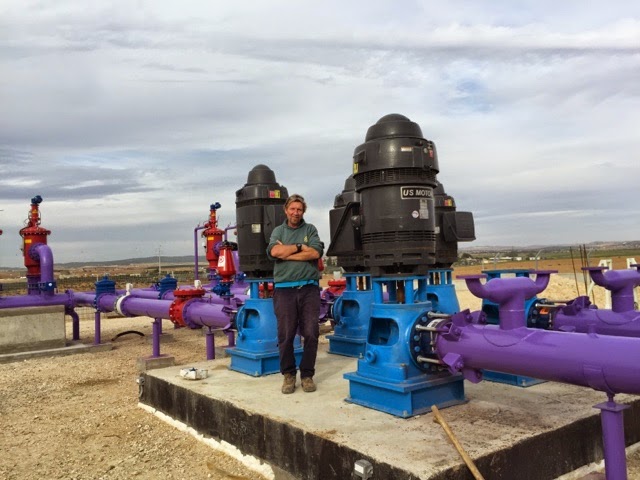


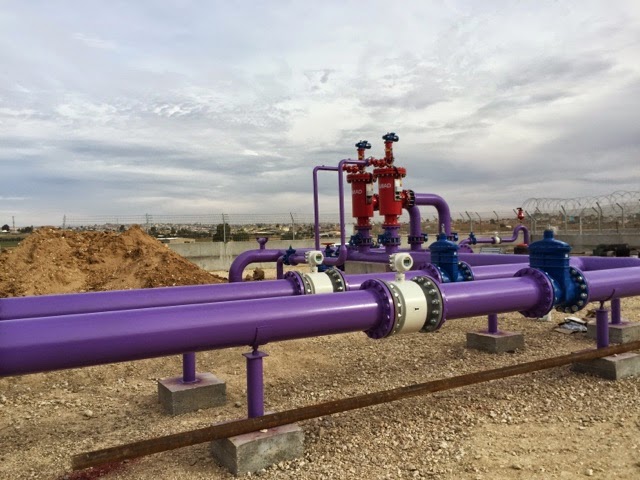
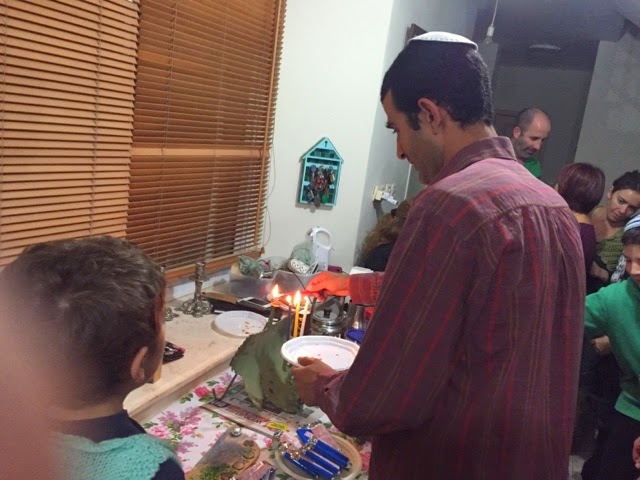
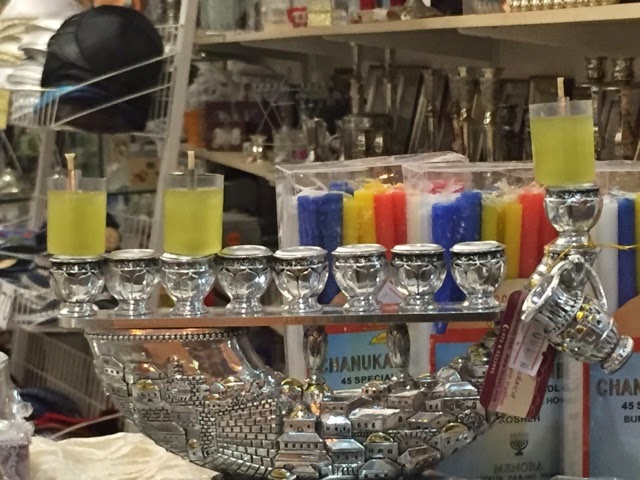
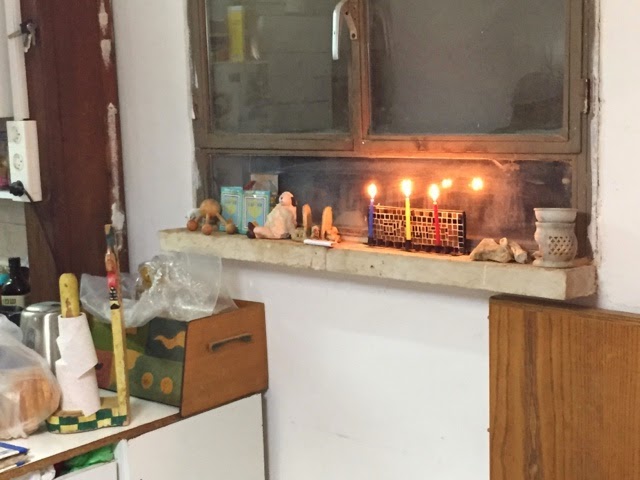
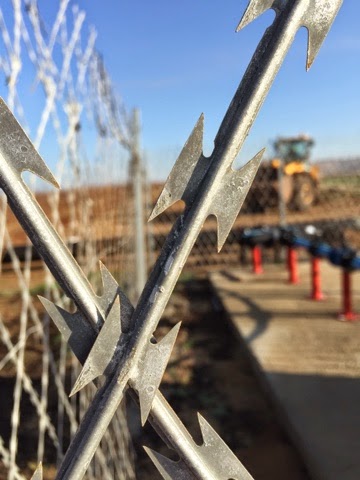

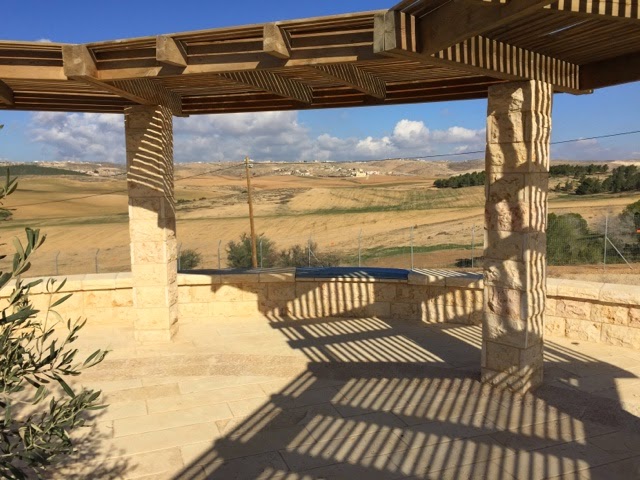
tina
Posted at 21:12h, 20 DecemberAnother great entry – imagine all that water flowing thru the desert –
I agree the machines look just like what's his name from Star Wars – R2D2?
Made a whole bunch of latkes for your visit to Palm Beach – Just a little decompression after your sojourn in Israel. Enjoy & good shabbos!
Bruce Burnett
Posted at 13:04h, 21 DecemberOh good. A vacation from our holiday. Any gardening or irrigation I can do. How about tearing up the 16th-18th holes (except the sprinklers) and planting a potato field. I can do this now, you know.
Icy Grip
Posted at 19:05h, 21 DecemberMaybe I'm just too old, but the contraption with the label "US Motor" looks a heckuva lot like Robby the Robot to me! Good to see he's not been "put out to pasture" and is instead contributing to this noble effort!
Bruce Burnett
Posted at 06:25h, 22 DecemberCould very well be. The mid-East is famous for recycling bits of 1960's iconic TV shows. Bill Mumy is apparently very popular in Egypt.
Unknown
Posted at 13:56h, 23 DecemberLori great !!! love Ron!